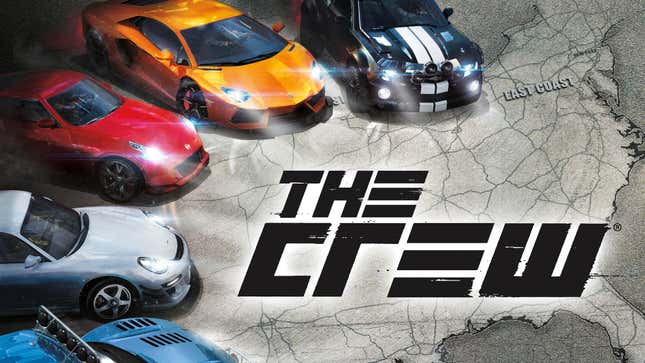In an increasingly digital age, owning media outright has become less and less possible. Whether it’s movies, music, books, or video games, the pivot to digital has made it harder for consumers to own permanent, physical copies of their favorite pieces of media. In video games, myriad titles that players have spent time and money on have been taken offline by publishers, never to be played again. Legislation around this is spotty worldwide, and some companies have gotten away with raking in consumer money just to pull the plug on a game months or years down the line. However, YouTube channel Accursed Farms is starting a coordinated campaign to force stronger legislation against this practice, with Ubisoft’s racing game The Crew at the center of it.
The growing lack of ownership in video games
Ross Scott, who runs Accursed Farms, posted a 31-minute video on the channel, which outlines the problem and how he believes drawing attention to The Crew’s April 1 shutdown could cause governments to enact greater consumer protections for people who purchase online games. As laid out in the video, consumer rights for these situations vary in different countries. France, however, has some pretty robust consumer laws, and Ubisoft is based there.
“This isn’t really about The Crew or even Ubisoft,” Scott says in the video. “It’s about trying to find a weak link in the industry so governments can examine this practice to stop publishers from destroying our games.”
According to a since-deleted blog post by Ubisoft, The Crew had over 12 million players before it was delisted in December of last year. Even if most of those people weren’t actively playing the game by the end of its lifetime, that still means that millions of copies of the game were sold—zero of which can be played today. This has become pretty common practice for a lot of online games from some of the biggest companies in the industry, like when Square Enix shut down Final Fantasy VII: The First Soldier in January 2023 or Electronic Arts sunsetting the mobile version of Apex Legends the following May. However, Scott hypothesizes that players don’t form substantial collective action to save these games because, by the time a company makes a decision to shut a game down, most of its player base has already moved on. This is why he’s formed the Stop Killing Games initiative, which is attempting to rally concerned video game fans into pushing local governments to examine the situation with The Crew. The hope is that this can spark broader change.
How the Stop Killing Games initiative is coordinating action
The Stop Killing Games website includes step-by-step instructions for different countries and regions on how to support the cause, whether by contacting local representatives and government bodies or just spreading the word.
[…]
The Stop Killing Games’ end goal is that governments will implement legislation to ensure the following:
- Games sold must be left in a functional state
- Games sold must require no further connection to the publisher or affiliated parties to function
- The above also applies to games that have sold microtransactions to customers
- The above cannot be superseded by end user license agreements
As Scott lays out, the ideal outcome is that legislation will require online games to be run on player-hosted servers after developers stop supporting it, rather than publishers shouldering the burden of hosting servers internally. This is often a leading cause for games and services being shut down.
[…]
Ubisoft’s director of subscriptions, Philippe Tremblay, recently said the company wants players to be more comfortable not owning the games they buy the same way people have grown accustomed to not owning albums on Spotify or films on Netflix:
One of the things we saw is that gamers are used to, a little bit like DVD, having and owning their games. That’s the consumer shift that needs to happen. They got comfortable not owning their CD collection or DVD collection. That’s a transformation that’s been a bit slower to happen [in games]. As gamers grow comfortable in that aspect… you don’t lose your progress. If you resume your game at another time, your progress file is still there. That’s not been deleted. You don’t lose what you’ve built in the game or your engagement with the game. So it’s about feeling comfortable with not owning your game.
Source: Ubisoft At The Center Of A Fight To Stop Online Game Shutdowns

Robin Edgar
Organisational Structures | Technology and Science | Military, IT and Lifestyle consultancy | Social, Broadcast & Cross Media | Flying aircraft

